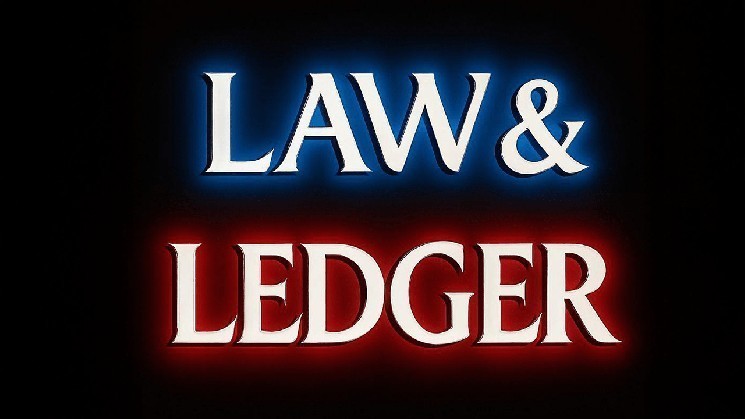Law and Ledger is a news segment focusing on crypto legal news, brought to you by Kelman Law – A law firm focused on digital asset commerce.
The following opinion editorial was written by Alex Forehand and Michael Handelsman for Kelman.Law.
Hester Peirce’s Peanut Butter & Watermelon Speech
SEC Commissioner Hester Peirce’s intriguing “Peanut Butter & Watermelon” speech—delivered on August 4, 2025, at U.C. Berkeley’s Science of Blockchain Conference—offers more than just a memorable culinary metaphor. Her reflections call attention to a foundational tension at the heart of digital finance: the promise of disintermediated technologies versus the traditional machinery of financial surveillance obligating intermediaries to police transactions.
The Digital Promise of Disintermediation
Peirce begins with a memory of her grandfather’s unconventional snack—watermelon with peanut butter—and an operator who knew his habit. This flashes a larger point: automating processes (i.e., removing intermediaries) can preserve confidentiality and restore agency to users, whereas human intermediaries introduce points of potential surveillance.
In today’s context, blockchain, zero‑knowledge proofs, smart contracts, and other cryptographic tools democratize access to finance—enabling DeFi lending, decentralized social platforms, and remittances without gatekeepers.
Surveillance and the Third-Party Doctrine
Yet entrenched legal doctrines stand in contrast to this promise. Under the third‑party doctrine, once a user passes data to a third party—say, a financial institution or a phone provider—they lose Fourth Amendment privacy protections.
This was illustrated historically by automating telephone dialing, whereby the Supreme Court affirmed its view in Smith v. Maryland “that a person has no legitimate expectation or privacy in information he voluntarily turns over to third parties.” This made sense in the context of human telephone operators, but, the petitioner argued, had seemingly little application in the context of automated self-dialing. Nonetheless, the Supreme Court was “not included to hold that a different constitutional result is required because the telephone company has decided to automate.”
Today, the third-party doctrine underpins the Bank Secrecy Act (BSA), which compels broad data collection through Suspicious Activity Reports (SARs), Currency Transaction Reports (CTRs), and know‑your‑customer (KYC) rules.
The result? Financial institutions are transformed into quasi‑law enforcement entities, submitting millions of SARs and CTRs annually—yet with limited feedback on data utility.
A recent Government Accountability Office study found that many Currency Transaction Reports go unused, suggesting their volume could be scaled back without undermining law enforcement. Put differently, the marginal value of mass financial surveillance may not justify the staggering costs it imposes on banks, their customers, and the public sector.
The Friction: Liberty v. Security
The SEC has its own surveillance tools, known as the Consolidated Audit Trail (“CAT”), which requires brokers to record customer and order event data for equities and options across all markets, from the moment an order is initiated through its routing, amendment, cancellation, or execution.
Brokers are required to send this data to the CAT, “where thousands of employees of the SEC and private self-regulatory organizations (“SROs”) can use it to review every person’s trading activity, without any suspicion of wrongdoing,” and without regard to “everyday investors’ privacy interests.” As Pierce warned, sledgehammers of this nature resemble “a dystopian surveillance state.”
Peirce challenges us to ask: Are these sweeping surveillance systems proportionate to the threats we face—and are they eroding the liberties essential to American identity? Quoting Justice Brandeis, she urges vigilance: “to be most on our guard to protect liberty when the government’s purposes are beneficent.”
Critics such as Katie Haun observe that even mundane transactions—from Venmo payments to hospital bills—create traceable “data points,” molding an all‑seeing system that surveils even innocent users.
Peirce signals a path forward: the time is ripe for rethinking the third‑party doctrine and modernizing the BSA and similar regulations. Echoing Treasury’s own efforts to postpone and review AML rules for investment advisers, she underscores the need for empirical evaluation—are all these reports genuinely actionable? And is the government even utilizing its deputization of financial institutions?
What It Means For You
For clients operating at the intersection of innovation and regulation, these issues translate into crucial, nuanced considerations.
- Designing for Privacy by Default: New architectures—token privacy, programmable compliance, or differential privacy mechanisms—can help satisfy AML obligations while minimizing unnecessary data capture.
- Advocating for Smarter Reporting Thresholds: Industry stakeholders should support reforms aiming to streamline SAR/CTR filing frameworks, focusing on truly suspicious activity and reducing clutter.
- Strengthening Fourth Amendment Protections in FinTech: As courts revisit doctrines like Carpenter v. United States and Smith v. Maryland, there may be space to extend wire‑level protections into financial domains, even for third‑party contexts.
- Helping Clients Navigate Compliance with Liberty in Mind: Organizations should conduct thoughtful cost‑benefit analyses of data collection—not just for regulatory compliance, but for preserving customer trust and freedoms.
Commissioner Peirce’s speech gracefully juxtaposes quirky childhood snacks with complex legal doctrines, and in doing so, challenges stakeholders—regulators, lawyers, technologists—to recalibrate the balance between privacy and surveillance in financial systems. As crypto-native counsel, Kelman PLLC stands ready to advise clients striving for compliance and constitutional integrity in a world hungry for disintermediation.
Kelman PLLC continues to monitor developments in crypto regulation across jurisdictions and is available to advise clients navigating these evolving legal landscapes. For more information or to schedule a consultation, please contact us.

